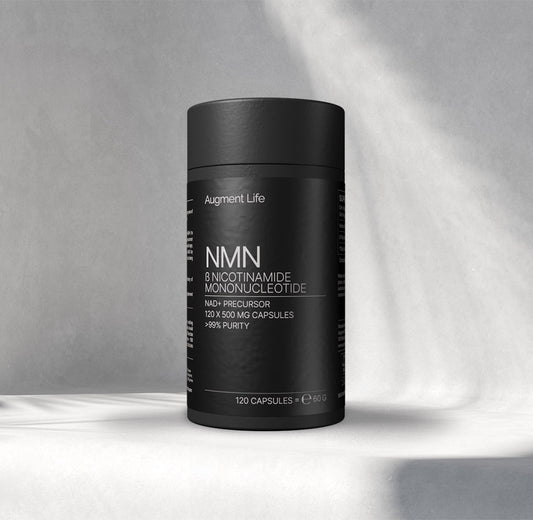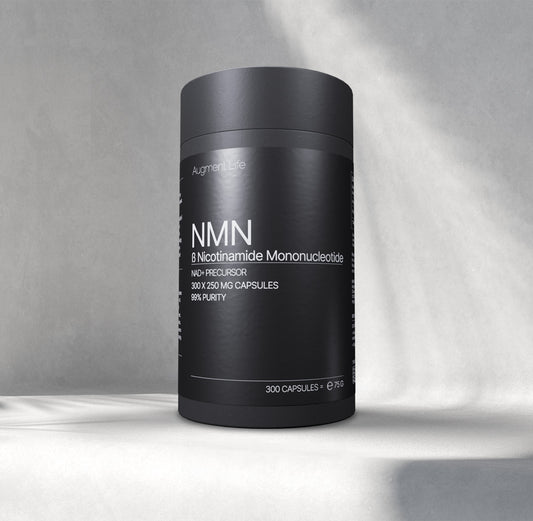Creatine is one of the most famous dietary supplements today, which is primarily used by bodybuilders and professional athletes. Creatine can improve muscle gain and strength and prevent protein breakdown.
Creatine´s abilities also make it an ideal choice in recovery after injuries, like after suffering a stroke. Keep reading and find out how creatine can be helpful in injury recovery.
What is creatine?
Creatine is a molecule naturally present in our muscles that is used for energy production. It is made of amino acids methionine, arginine, and glycine, but it is not a protein. In the body, it's used to store phosphate in the form of phosphocreatine, primarily in skeletal and heart muscles.
Phosphate is used to help produce the well-known energy compound, adenosine triphosphate (ATP). We can think of ATP almost as an energy currency, which we can produce more of if we have larger phosphocreatine storage.
Creatine - benefits
Creatine can therefore help increase and restore muscle tissue, as well as give an energy boost during strength training. Taking creatine supplements is a great way to safely increase phosphocreatine amounts.
Our liver and kidneys produce only about 2 grams of creatine per day, and a low amount can be found in beef and seafood. Supplementation is the only way to go if one wants to significantly increase creatine levels in a short period of time.
Proven benefits of creatine are:
- increasing weightlifting and exercise performance (1),
- increasing muscle mass and preventing muscle (protein) breakdown (2).
Creatine in stroke recovery
Several studies have already shown creatine can improve muscle mass in healthy older individuals (3, 4, 5, 6). But what about older individuals that are recovering from an intensive injury?
A new clinical study from the Brazilian São Paulo State University (UNESP) Medical School is studying the effects of creatine supplementation in older individuals who suffered a stroke (7). The study’s name is ICaRUS, which stands for “Influence of CReatine supplementation on mUScle mass and strength after stroke”. It was designed as a randomized, double-blind, and parallel-group trial that followed individuals in the acute phase of having experienced a stroke.
Thirty recruited subjects are receiving 10 grams of creatine twice a day, while thirty subjects are receiving a placebo. To prevent further muscle loss, all patients exercise regularly and take a recommended amount of protein for their age and body weight.
After 7 days in the hospital and each of the three follow-ups during the remaining 90 days, the patients will be tested for:
- Handgrip strength and lower limb strength,
- Muscle mass,
- Muscle capacity.
This study is expected to end in June of this year and bring more detailed and precise answers to creatine effects in post-stroke recovery.
Two previous studies on taking creatine in stroke recovery mainly tested for improvement of neurological functions, but failed to find a significant connection. However, the muscle mass and recovery improvement was often neglected or not investigated.
On the other hand, even if not found useful in improving cognitive function in adult stroke-recovering patients, creatine was already proven to improve brain function in:
- Children with traumatic injury (8),
- Vegetarians (9),
- Short-term memory and intelligence of healthy adults (10).
How to take creatine?
As with any dietary supplementation, the best doses for achieving a certain goal will vary among individuals. Since creatine has so far been mostly investigated for muscle mass and strength improvement, the recommendation is to start loading your muscles with 20-25 grams of creatine in a day, but divided into several smaller doses.
After doing that for a week, it is recommended to lower the amount to 3-5 grams a day for a prolonged period of time. Athletes and bodybuilders usually take creatine before working out, but it can be taken at any time of the day.
Studies that investigated creatine’s effect on brain function usually supplemented patients with about 5 grams per day for a week (9, 10).
Creatine is known to bind a lot of water in the organism, so it’s crucial to drink a lot of water to counter possible dehydration (11).
Creatine supplement - side effects
Creatine supplements were found to be one of the safest supplements to take, with virtually no side effects if taken within recommended doses (11).
Some of the side effects that can appear when taking higher doses are:
- Stomach pain, cramping, and/or diarrhea,
- Dehydration,
- Muscle cramping.
If very high doses of creatine are taken over a longer period of time, liver and kidney damage might occur. Creatine is also known to counter-interact with nonsteroidal anti-inflammatory drugs and diuretics.
Before taking any new supplementation, discuss it with your healthcare provider, especially if you already take medication.
Literature:
- Bemben, M. G., & Lamont, H. S. (2005). Creatine supplementation and exercise performance: recent findings. Sports Medicine, 35(2), 107-125. https://doi.org/10.2165/00007256-200535020-00002
- Casey, A., & Greenhaff, P. L. (2000). Does dietary creatine supplementation play a role in skeletal muscle metabolism and performance? The American Journal of Clinical Nutrition, 72(2), 607S-617S. https://doi.org/10.1093/ajcn/72.2.607S
- Collins J, Longhurst G, Roschel H, Gualano B. Resistance training and co-supplementation with creatine and protein in older subjects with frailty. J Frailty Aging. 2016;5(2):126–34. https://doi.org/10.14283/jfa.2016.85.
- Gualano B, Rawson ES, Candow DG, Chilibeck PD. Creatine supplementation in the aging population: effects on skeletal muscle, bone and brain. Amino Acids. 2016;48(8):1793–805. https://doi.org/10.1007/s00726-016-2239-7.
- Lanhers C, Pereira B, Naughton G, Trousselard M, Lesage FX, Dutheil F. Creatine supplementation and upper limb strength performance: a systematic review and meta-analysis. Sports Med. 2017;47(1):163–73. https://doi.org/10.1007/s40279-016-0571-4.
- Pinto CL, Botelho PB, Carneiro JA, Mota JF. Impact of creatine supplementation in combination with resistance training on lean mass in the elderly. J Cachexia Sarcopenia Muscle. 2016;7(4):413–21. https://doi.org/10.1002/jcsm.12094.
- de Souza, J.T., Minicucci, M.F., Ferreira, N.C. et al. Influence of CReatine supplementation on mUScle mass and strength after stroke (ICaRUS Stroke Trial): study protocol for a randomized controlled trial. Trials 24, 214 (2023). https://doi.org/10.1186/s13063-023-07248-6.
- Sakellaris, G., Kotsiou, M., Tamiolaki, M., Kalostos, G., Tsapaki, E., Spanaki, M., ... & Vamvakas, S. (2006). Prevention of traumatic headache, dizziness and fatigue with creatine administration: a pilot study. Acta Paediatrica, 95(7), 753-757. https://doi.org/10.1111/j.1651-2227.2006.tb02392.x
- Rae, C., Digney, A. L., McEwan, S. R., & Bates, T. C. (2003). Oral creatine monohydrate supplementation improves brain performance: a double–blind, placebo–controlled, cross–over trial. Proceedings of the Royal Society of London. Series B: Biological Sciences, 270(1529), 2147-2150. https://doi.org/10.1098/rspb.2003.2492
- McMorris, T., Mielcarz, G., Harris, R. C., Swain, J. P., & Howard, A. (2018). Effect of creatine supplementation on cognitive function of healthy individuals: A systematic review of randomized controlled trials. Experimental gerontology, 108, 166-173. doi: 10.1016/j.exger.2018.04.013
- Kreider, R. B., Kalman, D. S., Antonio, J., Ziegenfuss, T. N., Wildman, R., Collins, R., ... & Lopez, H. L. (2017). International Society of Sports Nutrition position stand: safety and efficacy of creatine supplementation in exercise, sport, and medicine. Journal of the International Society of Sports Nutrition, 14(1), 18. https://doi.org/10.1186/s12970-017-0173-z.








